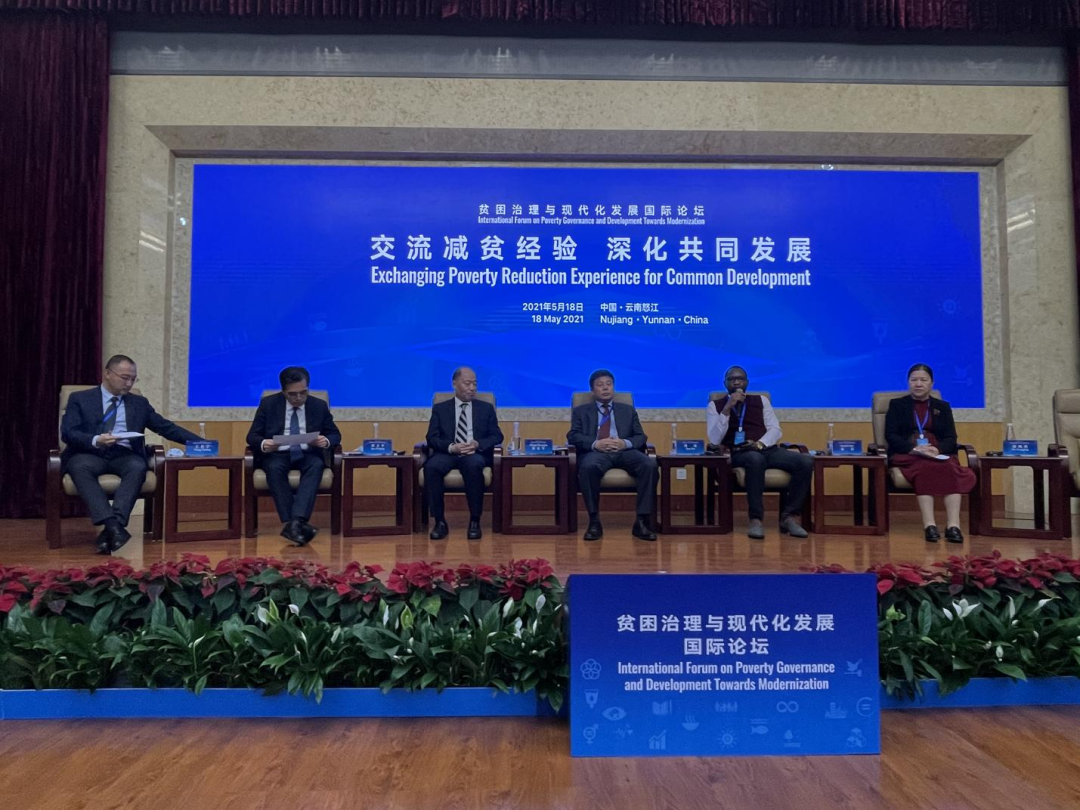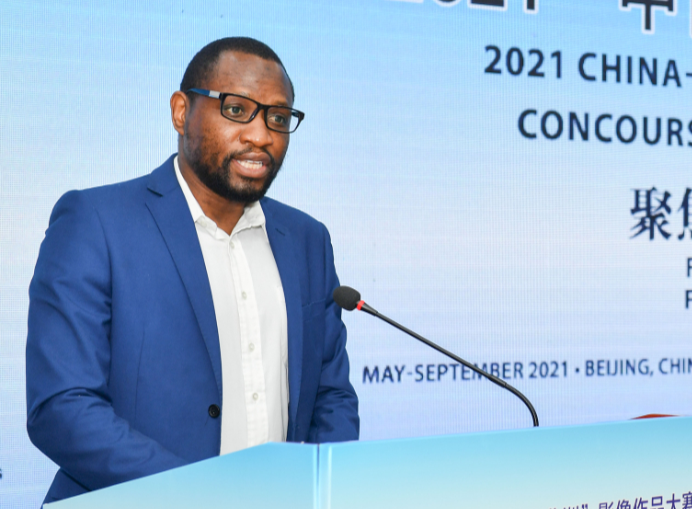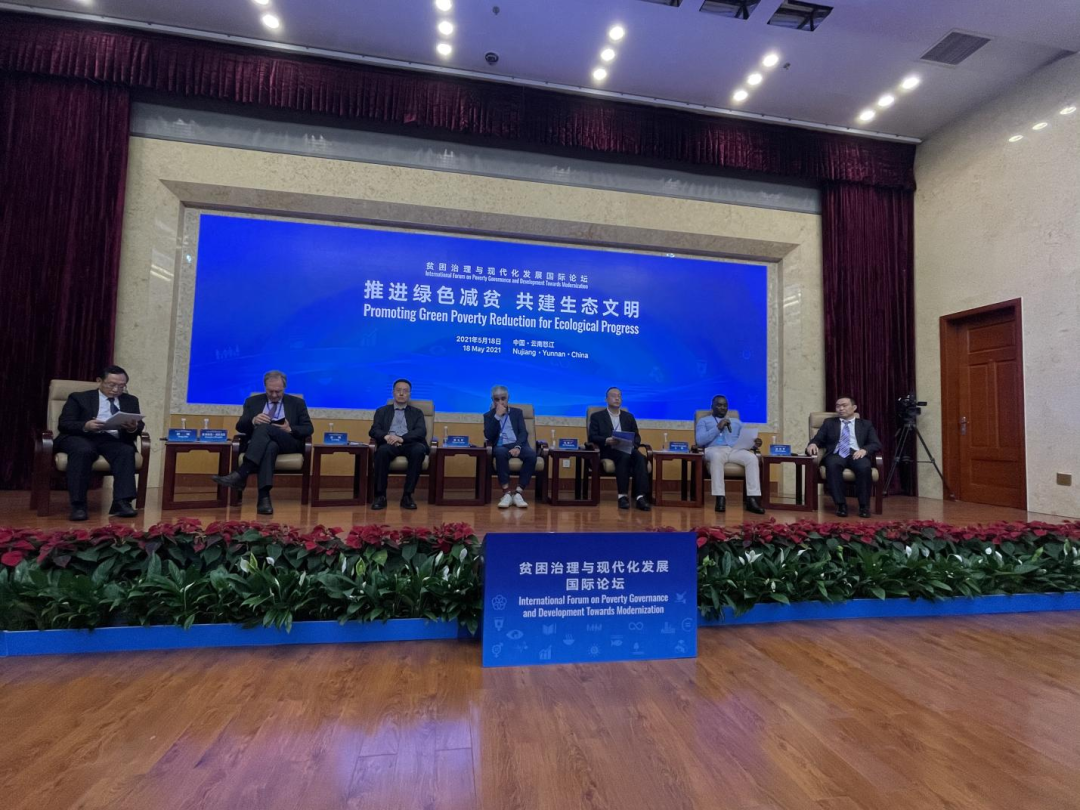近日,由中国外文局、云南省人民政府、中国公共关系协会、中国人民大学共同主办的贫困治理与现代化发展国际论坛在云南怒江召开,论坛以“推进全球贫困治理 促进现代化发展”为主题,邀请专家学者参与交流研讨。传播研究院国际留学生丹尼尔·奥罗(Daniel Oloo)和天赐(Donatien Niyonzima)向论坛提交论文并作主题发言,本期公号进行摘要推送,以飨读者。
充分利用数字外交:
交流减贫经验以促进共同发展
丹尼尔·奥罗

丹尼尔·奥罗在发言中首先指出在减贫领域遇到的共性问题:在21世纪,由于国家和非国家行动者在交流减贫战略和专业知识方面的技能、知识、经验和技术不足,有关行动者发展议程的信息一直受到影响。
他指出,数字工具使这些行动者能够分享他们的经验,将其作为确保世界摆脱贫困的全球产品。目前,技术已经改变了我们交流学习经验和可以在区域内采用的最佳实践的方式。数字外交的重点是这些参与者利用数字工具与各种参与者和利益相关者在跨区域的发展计划中进行沟通和互动。

非洲国家在降低贫困水平方面仍然面临挑战。但中国通过农业技术发展减贫的做法,表明非洲国家可以有效降低贫困水平。中国对发展中国家的帮助为消除贫困的国际合作做出贡献。
他在发言中主要探讨了中国利用数字平台传播减贫事迹的各种方式,并推荐了为确保有关信息能传达给合适的人,参与者可以使用的传播策略。
原文
Leveraging on Digital Diplomacy: Exchanging poverty reduction experience for common development
Daniel Oloo
In the 21st century, information regarding an actor's development agenda has continued to suffer due to inadequate skills, knowledge, experiences as well as technique in communicating poverty reduction strategies and expertise by these states and non-state actors.
Digital tools offer these actors abilities to share their experience as a global good to secure the world out of poverty. Currently, technology has changed the way we exchange our learning experiences and best practices that could be adopted regionally. On the other hand, digital diplomacy focuses on the utilization of digital tools by these actors to communicate and engage with various actors and stakeholders in the development program across regions.
Actors in the development forums such as multilateral corporations, diplomatic missions, think tanks, as well as private companies and citizens, have adopted these platforms to spread their work, network and to influence or get favorable feedback from the wide digital public. In doing so, some of their communications have borne fruits while others have created concerns from different sectors depending on how the messages are crafted. Poverty reduction strategies and questions have also emerged as topics that these actors are curating and interacting with on these platforms.
The problems that have arisen in communicating such narratives include formatting poverty reduction messages and planning on how they can be disseminated. Platform society users afford the capabilities to amplify, counter the narrative, and set both online and offline agendas. The extent of how these actors leverage on these technologies, can demonstrate that being open brings progress while isolation may lead to backwardness.
To establish the experience for common development, it is inevitable for foreign missions to adopt digital diplomacy to conduct their foreign policy abroad. As a result, their influence can be subjected to scrutiny and adaptability by the states and citizens that they are targeting. Using these tools, the exchange of poverty reduction experience for common development is key since it is from the experts and their strategic partners that countries can be able to reduce poverty or shake it off completely.
Countries in Africa still have challenges in reducing their level of poverty. Poverty on the other hand encompasses different ontological and epistemological meanings. On one hand poverty reduction is viewed as the ability to use locally available resources to achieve a development goal, while on the other side, it is seen as a strategic initiative by many players each driving towards a common goal with diverse influence and competition.
But the realization of poverty through agricultural technology development established by China demonstrates that African countries can effectively reduce their poverty level. China’s help to developing countries can improve capacity building through bilateral and multilateral channels, therefore, contributing to international cooperation on poverty eradication.
China and its partners can leverage digital diplomacy where many of these strategies are shifting their focus from dissemination and publicity strategy to more strategic communication programs that stress information interventions beyond the conventional campaigns, seminars, and workshops. Therefore, this paper explores the various ways that China is using digital platforms to communicate their best practices to win the hearts and minds of foreign countries in regards to shaking off poverty and enhancement of community with a shared future. It also recommends strategies that players can use to ensure their messages reach the right people.
推进绿色扶贫,发展生态文明
天赐

天赐在发言中分享了他对于推动绿色减贫和发展生态文明的看法。
天赐认为,生态文明是一个更具可持续性、更加公正的社会愿景,是一个服务于万物的世界。作为一个在中国被频繁使用的术语,它旨在为应对21世纪挑战的提供一个统一的概念框架。生态文明就是中国特色的可持续发展愿景,它与中国的政治文明特征、中国治理和可持续经济发展议程相辅相成。

天赐认为,脱贫减贫同样需要绿色化。绿色经济有助于减少贫困和提升社会包容性,特别是对于发展中国家的数以百万计的农民来说,绿色经济能够提供更好的收入渠道,对脱贫减贫意义巨大。当前世界不仅要更好地服务于处在贫穷和饥饿中的人口,同时也要应对全球变暖、生态系统和生物多样性破坏带来的挑战,如果要实现可持续和公平的经济发展,就需要迅速的经济和生态转型。绿色经济转型就是向低碳化、资源高效和社会包容方向发展,这有利于当地经济社会发展和减少贫困。
原文
Promoting green poverty reduction and developing ecological civilization
Donatien Niyonzima
Dear participants all protocols observed, Good afternoon! Today I am going to be sharing with you my views about Promoting green poverty reduction and developing ecological civilization.
The institute of Ecological civilization defines Ecological Civilization as a world in which human communities (our systems of economics, agriculture, education, production and consumption, etc.) are designed to promote the overall well-being of people and the planet. It’s a vision for a more sustainable and just society; a world that works for all.
It is a term that has been used many times by China in its quest to provide a coherent conceptual framework for adjustments to development that meets 21st century challenges. Ecological civilisation was written into the Chinese constitution in 2018. It serves as a vision of sustainable development with Chinese characteristics and refers to Chinese philosophical and civilisational traditions. It seeks to complement the three core dimensions of the concept of sustainable development – the environmental, the economic, and the social dimensions – with specific features of Chinese political civilisation, aspects of Chinese governance, and core elements of the Chinese sustainable economic development agenda.
In order to attain this vision, the fight against poverty needs to go green. Fighting against poverty towards a shared prosperous future requires cooperation beyond economic prospects. To be sustainable, this fight needs to avail policies that give priority to the poor. Countries must have an integrated approach to implementation that harmonizes environmental integrity, social inclusiveness and economic prosperity.
A greener economy can make a major contribution to poverty reduction and social inclusion. By providing better income opportunities, greener economy can make a significant contribution to poverty reduction. This is particularly the case for millions of smallholder farmers in developing countries. Greening their small farms through sustainable farming practices is the most effective way to increase food availability, reduce poverty, increase carbon sequestration and water efficiency, and at the same time link marginalized farmers with international supply chains.
Based on the extensive review of data from Africa and Asia, it has been demonstrated that use of green farming methods (such as integrated pest management, integrated nutrient management, low-tillage farming, agro-forestry, aquaculture, water harvesting, livestock integration, nitrogen fixing crops, etc.) resulted in productivity increases of 59 to 179 per cent. Studies have estimated that for every 10 per cent increase in farm yields, there has been a 7 per cent reduction in poverty in Africa; and more than 5 per cent in Asia.
Efforts are not only to be done in the field of agriculture, there are many other aspects of economy that should be prioritized as well to eradicate poverty. To mention a few, there is a need for investment in natural assets, availing clean water and sanitation to the people, to minimize the cost of energy by adopting the use of renewable energy and to advance tourism from which both the country and the citizens benefit. Once achieved, it would create jobs and enhance social equity.
Rapid economic and ecological transformation is needed if the world is to better serve the poor and hungry, address the challenges of global warming and loss of ecosystems and biodiversity, while achieving a sustainable and equitable economic development. A move towards a low-carbon, resource-efficient, and socially inclusive green economy holds clear benefits to local communities and for reducing poverty. This transition needs policies and investments alongside the behavior change and trends related to how people invest and abide to policies in place.
Concluding my remarks, Promoting green poverty reduction and developing ecological civilization needs to keep taking into account some important areas of action such as environmental reform for poverty reduction; support for natural resources, and raising awareness of the benefits that greening holds for poverty alleviation.
Thank you!





 回到顶部
回到顶部